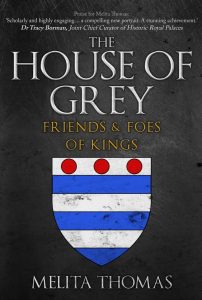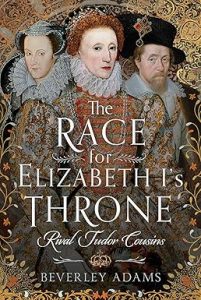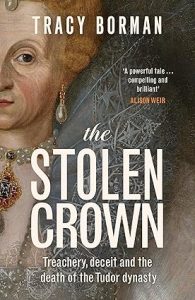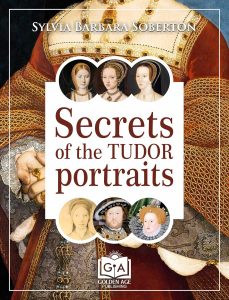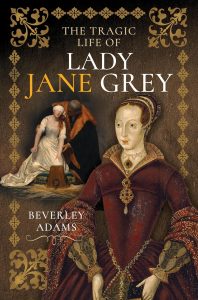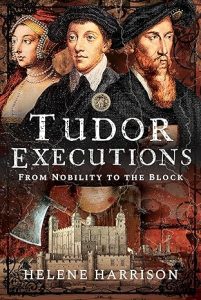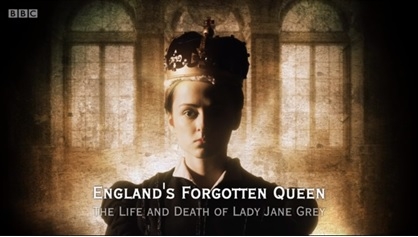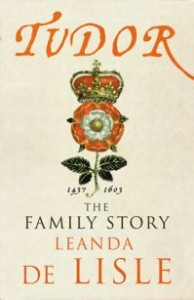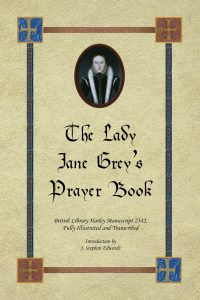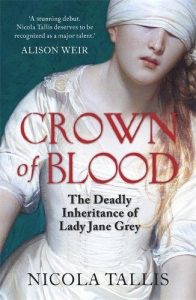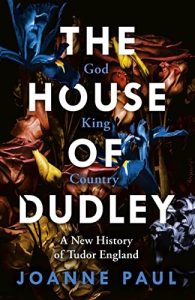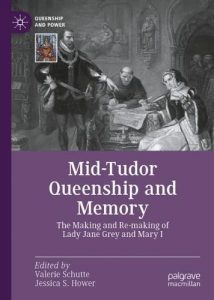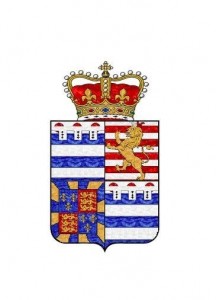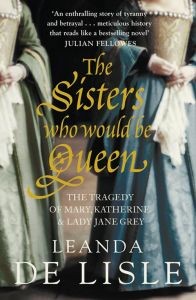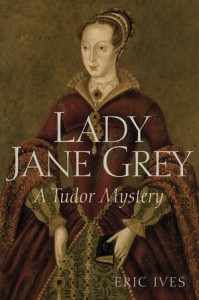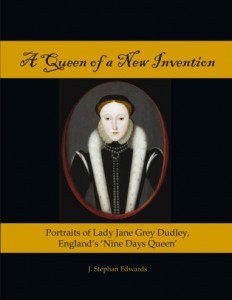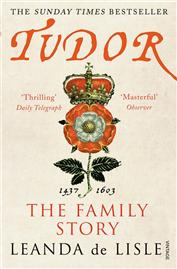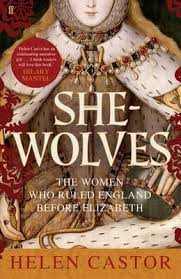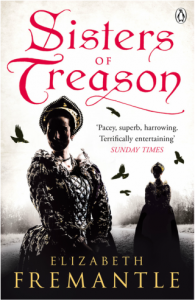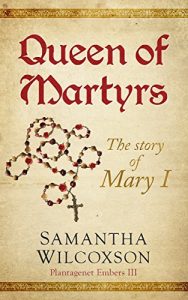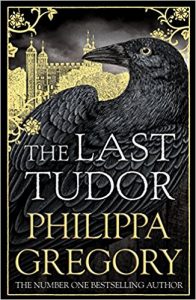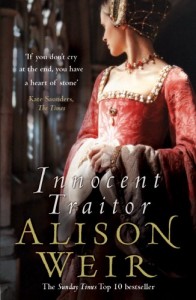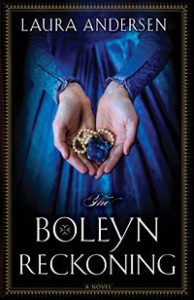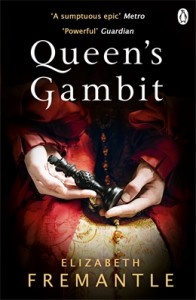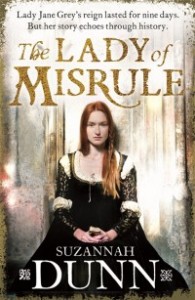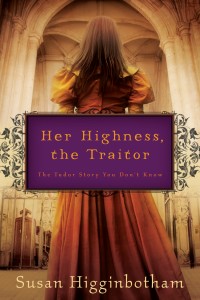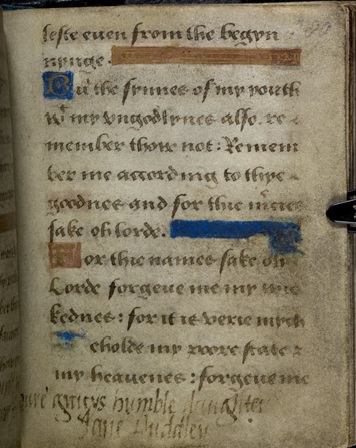Melita’s first book, ‘The King’s Pearl: Henry VIII and his daughter Mary’ was published by Amberley in 2017. Her new book, ‘The House of Grey: Friends & Foes of Kings’ was published by Amberley in September 2019.
Melita is also the co-founder and editor of Tudor Times, a repository of information about Tudors and Stewarts in the period 1485-1625 www.tudortimes.co.uk.
Buy ‘The House of Grey’:
Follow Melita and the Tudor Times on Social Media
Tudor Times: Tudor Times
Facebook: Tudor Times
Twitter: @thetudortimes
Many thanks to Melita for answering my questions.
Why did you choose this subject for your book?
The Greys first really came to my attention when I was writing my first book, The King’s Pearl. I was surprised by discovering how frequently the Grey family was involved in both the political and familial life of the English court during the period 1516 – 1547 that I was looking at. I wanted to know why the Greys were so much a part of the inner circle, where they had come from, and why the family which had served Edward IV, Edward V, Henry VII, Henry VIII and Edward VI so loyally, then made a bid for the Crown.
What does your book add to existing works about the Grey family?
I was interested in two areas in particular – first, the role of Thomas Grey, 1st Marquis of Dorset, in the events of Spring – Summer 1483, when his half-brother, Edward V was deposed and disappeared, to be replaced by Richard III. What was the root of the enmity between Dorset and Hastings – was there any evidence of it before this period? The second, and perhaps most burning question related to the events of the summer of 1553 – why did the Grey family support the idea that sixteen-year-old Jane should be chosen to succeed Edward VI – a notion that had little legal support and no public support beyond a small circle of radical Protestants surrounding the king. Was it just ambition, or something else? My research gave me a very different view of the motives of the various players – particularly those of Henry Grey, Duke of Suffolk.
Another area little covered elsewhere is the experience of the Grey family in Ireland. I had previously been completely unaware that Lord Leonard Grey was a Deputy Lieutenant of Ireland, and died, like his ally, Thomas Cromwell, on the block. Similarly, his sister, Lady Elizabeth Grey, Countess of Kildare was also involved in Irish politics.
What surprised you most researching this book?
I think that Thomas Grey, 1st Marquis of Dorset has been rather unfairly maligned by history books – characterised as ambitious and self-seeking. He may, of course, have displayed those characteristics, but he also showed himself to be a grateful and loyal step-son to Edward IV, and his support for his half-siblings, Edward V and Elizabeth of York deserves more recognition. I was also surprised by how much more sympathetic I felt towards Suffolk’s actions – although as an individual, I did not find him appealing – he was horrible to his mother!
Which generation of the Greys did you enjoy writing about the most?
Tricky, as all the generations have some element of interest. I think, perhaps, the lives of 1st Marquis of Dorset and his wife, Cecily were most new to me in total, but the change in my understanding of the events around Lady Jane’s tragic story was the most engaging to me as a historian – looking at the sources, and really trying to understand why they did what they did, and emerging with a different view.
Who did you find most difficult to write about?
The most complicated thing to write about was Ireland – the politics of Tudor Ireland are incredibly complex, and we still feel the long-term consequences of them every day – in fact, particularly at present as the status of Northern Ireland remains a thorny issue. To try to piece together what happened without reading backwards from the results, and to treat the topic as impartially as possible when many secondary sources are heavily influenced by centuries of political division, was hard.
Are there any members of the family whose stories deserve to be better known?
I particularly liked Cecily Bonville, wife of 1st Marquis of Dorset. She was one of the greatest heiresses in England, but being an heiress had a high price – dissent in her family over money, and constant efforts to keep everyone happy that could never succeed. Another interesting woman I’d like to know more about, although whether anything more can be found is doubtful, is Lady Elizabeth Grey, Countess of Kildare – she married without her family’s consent, and found herself in the maelstrom of Irish politics.
Did you learn anything new about Lady Jane Grey during your research?
I definitely emerged with a different picture of Jane’s relationship with her parents, her father in particular. The two were united in their religious faith, and their determination to bring a radical form of Protestantism to England – far from Jane being a tool of his ambition, the two shared a vision.
How does their success/failure at court as a family, compare with that of their rivals, the Howards?
The difference between the families is that the Howards had significant landed wealth which gave them great influence. The Greys, despite having the title of a marquisate, did not have that level of power – their wealth was entirely based on the landed estates of the baronies of Harington and Bonville, brought to the 1st Marquis by his wife, Cecily Bonville. The Greys’ influence stemmed from their familial relationship with the king and their total loyalty to him. Militarily, the Greys did not have the skills of the Howards – the 2nd Duke of Norfolk and two of his sons, the 3rd Duke of Norfolk and Lord Edward Howard were Henry VIII’s most trusted commanders. Although the Greys were involved in Henry VIII’s wars and tried their best, they were not as talented as leaders or generals. Nor did they ever achieve the level of influence in Council that the Howards did. Henry VIII was a brilliant judge of men – he chose his ministers for their skills and talents, even if he then sometimes cast them aside in a self-destructive way. He was personally fond of 2nd Marquis and his siblings, but it is clear that he had a very low opinion of the military or political skills of the 3rd Marquis (later Duke of Suffolk).


